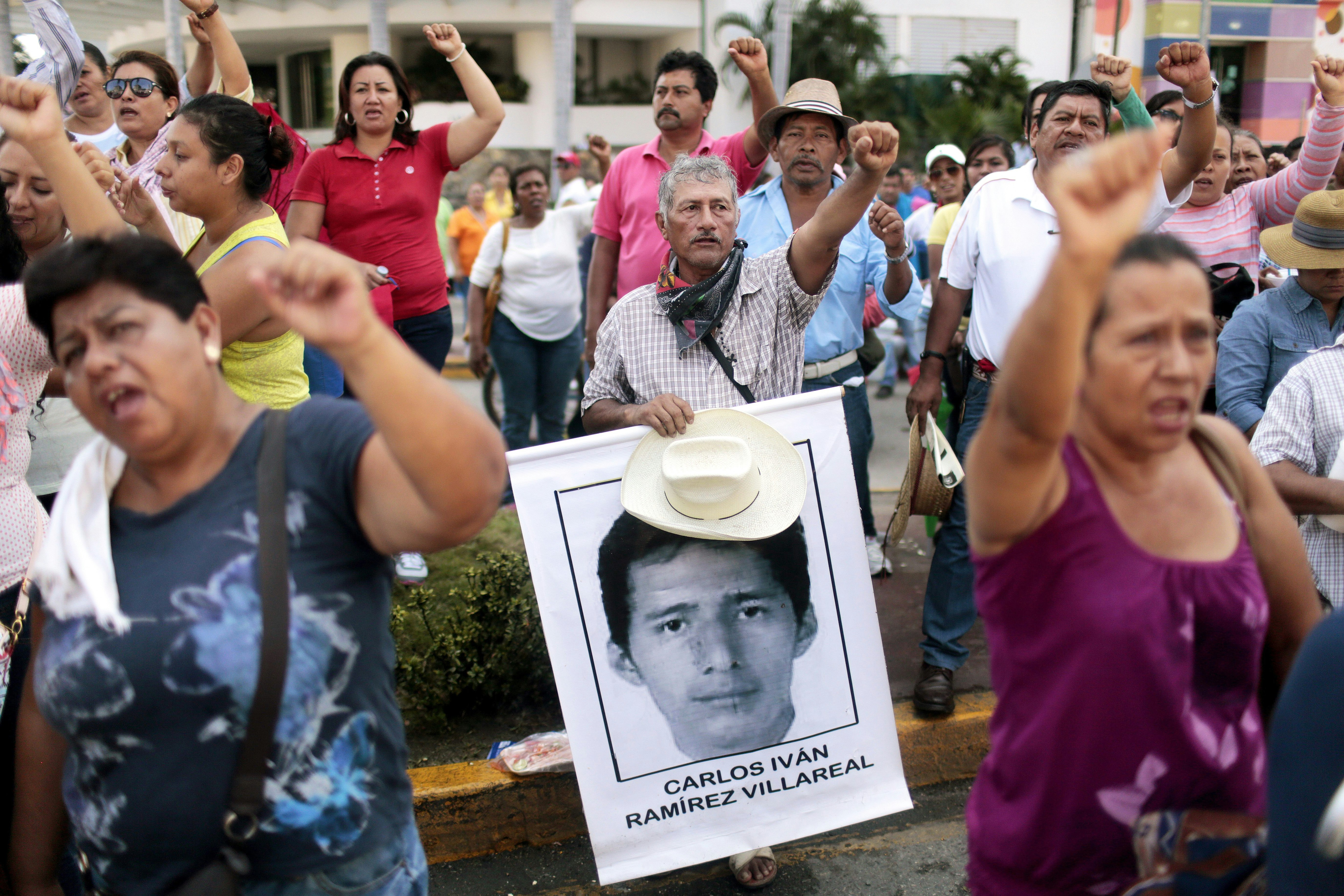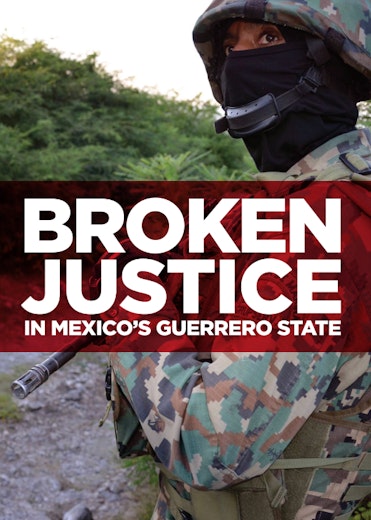New Report: Time to Rebuild Rule of Law in Mexico’s Guerrero State
NEW YORK—A new independent assessment of the justice system in Mexico’s Guerrero state has underlined the systematic failure of the authorities there to investigate and prosecute the grave crimes of murder, torture, and enforced disappearance.
Broken Justice in Mexico’s Guerrero State was produced by researchers from the Open Society Justice Initiative, with support from the Center for Human Rights Miguel Agustín Pro Juárez (Centro Prodh) and the Guerrero-based Center for Human Rights of the Mountain Tlachinollan.
The result of extensive research in Guerrero beginning in 2013, the report provides the most comprehensive assessment to date of the structural problems facing Guerrero’s criminal justice system, based on first-person interviews with prosecutors, police, local politicians, and human rights defenders. It includes updated data on crimes and prosecutions in the state, drawn from dozens of freedom of information requests, including:
- Killings: Of 19,434 homicides reported to prosecutors between 2005 and 2014, prosecutors opened 10,921 investigations for intentional or unintentional homicide, leading to only 2,391 indictments, and just 1,269 convictions. There were 77 deaths in custody in Guerrero’s prisons from 2011 through 2013, with none leading to criminal investigation.
- Enforced disappearance: The state human rights commission documented 90 cases of involuntary and enforced disappearance between 1990 and 2014. Prosecutors have launched criminal investigations into none of these, but have into 44 additional cases. None of these have resulted in indictments. There have been zero convictions.
- Torture: The state human rights commission documented 54 cases of torture from 1994 through 2014. Prosecutors have never issued an indictment for the crime, and there have been zero convictions for torture.
The report also identifies priorities for reform for the new governor and his administration, who takes office on October 27; a new Congress is to be installed in mid-September.
James A. Goldston, executive director of the Justice Initiative, said: “Guerrero is one of several Mexican states under assault from corruption and violence. Restoring public confidence in security and the rule of law in Guerrero requires a functioning criminal justice system—this report seeks to diagnose the existing problems, and identify what needs to change.”
The report attributes the crisis of impunity in Guerrero to a political failure—the erosion of the checks and balances that are an essential part of a functioning criminal justice system. It concludes that state prosecutors, judges, and police have aligned themselves with the narrow interests of the state’s political leaders, rather than protecting the public by investigating and prosecuting crime. Political interference has also disabled the capacity of the state human rights commission to challenge official inaction.
It also details other grave shortcomings including: the lack of independent forensic services; a weak or nonexistent witness protection system; a reliance on torture by prosecutors to extract confessions; fundamental gaps in the legal framework for prosecuting torture and enforced disappearances; a lack of coordination between state prosecutors and their federal counterparts; a lack of credible legal defense services and a dysfunctional prison system.
The state’s new governor, Héctor Astudillo Flores, declared during his campaign for elections this June: “We need to fight against impunity and we need to end abuses of power.”
The report urges him to pursue a range of reforms, including the following proposals for urgent action:
- Create an independent deputy state prosecutor for human rights abuses and atrocities to strengthen systemic accountability in the justice sector.
- Establish integrated, multidisciplinary teams of prosecutors, investigators, and social workers to investigate disappearances, and conduct related criminal investigations.
- Locate, exhume, and investigate clandestine and mass graves, working with federal authorities, and seek national and international assistance for the timely exhumation and investigation of such graves.
- Ensure that both forensic and expert witness services are independent of political authorities and the state prosecutor’s office.
- Amend the torture law, bringing it into line with the Inter-American Convention to Prevent and Punish Torture and ensuring appropriate penalties follow international standards; formally include the criminal offenses of torture and enforced disappearance in the criminal code.
- Amend the law to create an oversight committee for the human rights commission made up of citizen representatives, including civil society representatives, and include a formal role for the UN Office of the High Commissioner for Human Rights.
Goldston commented: “There have been plenty of calls for change in Guerrero before. But the most fundamental change required to begin with is a change of attitude—the authorities need to admit that they have a problem, and be open to all who can help, both from inside and outside Mexico.”
The Justice Initiative has been working with partners in Mexico since 2004—initially in Nuevo León and then in Morelos—where we helped establish Mexico’s first pretrial services agency. More recently, our legal experts working in the field of the right to information and the right to truth have supported litigation by Mexican partners, Article 19 and the Foundation for Justice (Fundación para la Justicia—FJEDD), aimed at making public documents related to the investigation of mass killings at San Fernando.
Related Work
Mexican Courts Can Help End the Use of Torture. So Why Don’t They?
Recently, the Supreme Court of Mexico issued several forceful rulings on how courts should deal with torture allegations. But whether the courts will act on the rulings remains an open question.
Searching for Answers, and Leadership, in Guerrero
Why has there been so little criminal accountability for past killings, disappearances, and torture in the Mexican state of Guerrero?

Broken Justice in Mexico’s Guerrero State
This report analyzes the structural deficiencies of the justice system in Mexico’s Guerrero state—flaws that have enabled perpetrators of violence to operate with almost absolute impunity.
